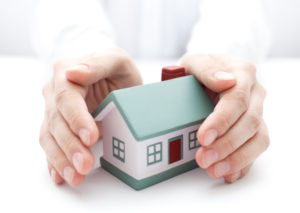What is damage insurance?
 The concept of an insurance contract to cover one’s property in the event of a loss is nothing new; it is a 4,000-year-old practice. The best-known historical reference is the Babylonian Code of Hammurabi, which stipulated that in the event of a loss or theft of merchandise, the designated carrier would not be held liable for delivery if it could prove that it was not involved in the wrongdoing.
The concept of an insurance contract to cover one’s property in the event of a loss is nothing new; it is a 4,000-year-old practice. The best-known historical reference is the Babylonian Code of Hammurabi, which stipulated that in the event of a loss or theft of merchandise, the designated carrier would not be held liable for delivery if it could prove that it was not involved in the wrongdoing.
Since then, numerous insurance products have been developed to meet consumer needs: life insurance, automobile insurance, disability insurance…almost anything is insurable. The basic principle is that where there is a possibility of loss due to an unforeseeable event, an insurable interest exists.
Insuring against damages
One’s home, personal property and car are usually the most important investments people make in their lives. If a fire, a robbery, an accident or another risk were to occur without the consumer having any damage insurance, they could risk losing everything.
Is it mandatory?
Every vehicle owner in Quebec must at least purchase Section A – Coverage for civil liability arising from property damage and bodily injury caused to another person automobile insurance, which covers any property damage that the insured—as the owner or driver of the automobile—could cause to another person.
Home insurance is not mandatory, except if a lender requires it. That said, such insurance is still highly recommended since, in addition to covering personal property and the home itself, it usually also includes civil liability.
An agreement in good faith
Insurance contracts are based on the good faith of all parties involved. Consumers must declare all the information they have regarding the property to be insured, as well as information on themselves and those living under their roof. This information is important since it can influence the amount of the premiums to be paid, and indeed the insurer’s decision whether or not to cover the risk at all. It also enables the agent or broker to offer the consumer the best coverage. In exchange, the insurer commits to compensating the insured under the contract they purchased.
LHowever, insurance remains a complex, abstract concept for the majority of Quebeckers. Fortunately, consumers can count on the advice of damage insurance brokers and agents who are trained to advise them and explain the coverages that meet their needs. These professionals have knowledge their clients often lack. In order to lessen the information imbalance, almost 20 years ago, the government began requiring insurance professionals to hold a licence to practice, and be supervised by a specialized organization, the Chambre de l’assurance de dommages (ChAD). To learn more about these professionals and the role of the ChAD, go to l’assurance de dommages (ChAD). Pour en savoir plus sur ces professionnels et le rôle de la ChAD, rendez-vous à chad.ca/en/protecting the public.
The main types of damage insurance coverage
Automobile insurance
Automobile insurance is designed for car owners, and has two parts: Section A – Coverage for civil liability arising from property damage and bodily injury caused to another person (compulsory), which covers, in particular, property damage that the insured could cause to another person; and Section B – Coverage for damage to insured vehicles (optional), which covers damage to the insured’s vehicle.
Home insurance
Home insurance covers personal property that the insured either owns or uses, and which is generally found in a home. Other types of personal property are sometimes also covered, such as boats, trailers, and property belonging to a student. Civil liability is also included in a home insurance policy.
Depending on the type of housing, home insurance also covers the building (owner-occupant insurance) or improvements made to a condo (co-ownership insurance for co-owner occupants). Learn more about the different types of home insurance.
Civil liability insurance
Article 1457 of the Civil Code of Québec stipulates that we all have the obligation to not harm others. If we fail in this duty, we may be held liable for the moral, material or bodily damages we cause, and in certain cases, be compelled to pay financial reparations. Civil liability protects the insured as well as their spouse and children who live under the same roof. Generally included in home insurance, civil liability insurance is used to pay legal defence costs in the event of a civil liability suit.
Commercial lines insurance
Commercial lines insurance concerns all business owners, regardless of the size or type of business. Depending on the nature of the risk, it can cover material damages, operating losses due to business interruption, theft, employee misappropriation of funds, and civil liability in the event of product or service-related damages to another person, etc.
Even after purchasing insurance, one person in four still does not rest easy. How about you?
This pamphlet (in French only) will help you understand certain basic concepts to ensure that you have coverage for your property, your car, your home as well as your civil liability if you cause any property damage, an injury or mental suffering to another person.
